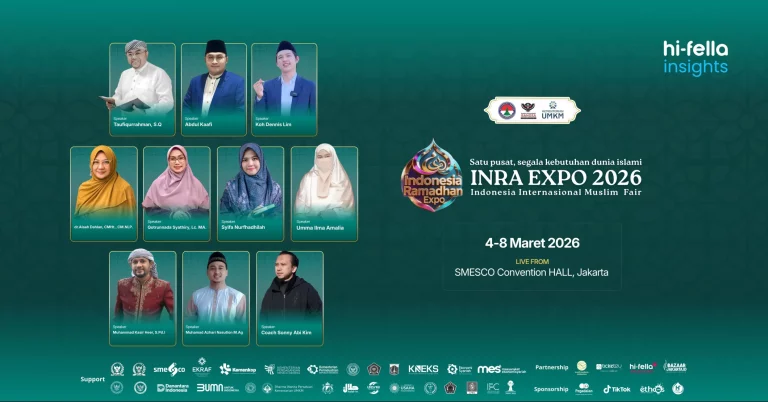The food and beverage (F&B) industry is like a high-stakes cooking show—fast-paced, cutthroat, and full of surprises. If you want your brand to be the gourmet dish everyone talks about instead of the undercooked disaster the judges spit out, you need connections. And not just any connections—global, game-changing, business-boosting ones. That’s where Hi-Fella’s Online Exhibition struts in like a Michelin-starred chef at a street food festival.
The Future of Online Exhibitions in the F&B Industry
The food and beverage (F&B) industry has long relied on traditional trade shows—lugging around heavy brochures, navigating vast convention centers, and enduring the faint aroma of burnt coffee. But as the world embraces digital transformation, the future of F&B exhibitions is shifting to an online, interactive, and seamless experience. Leading this revolution is Hi-Fella’s Online Exhibition, a platform that’s redefining how industry professionals connect and collaborate.
Historically, F&B trade shows have been pivotal for networking, product launches, and business expansion. However, these physical events come with challenges: logistical complexities, significant costs, and geographical limitations. The global pandemic further highlighted these issues, accelerating the need for digital solutions. Enter Hi-Fella’s Online Exhibition—a platform designed to overcome these hurdles by offering a virtual space where F&B professionals can showcase products, engage in real-time interactions, and build global networks without leaving their offices.
What Makes Hi-Fella the Coolest Kid on the Virtual Block?
Hi-Fella isn’t just an exhibition platform; it’s networking on steroids. It’s designed for F&B professionals who want more than just business cards—they want real connections and real deals. Here’s why it’s the ultimate game-changer:
Global Reach Without the Jet Lag
You could spend thousands on flights and hotel rooms just to meet industry leaders. Or, you could log in from your sofa, sip your coffee (or wine, no judgment), and connect with over 600,000 global professionals in a few clicks. No boarding passes required.
Talk the Talk with Real-Time Translation
The struggle of multilingual business chats? Solved. Hi-Fella offers real-time translation in 10+ languages, so whether you’re pitching to a distributor in Spain or a manufacturer in China, you’ll sound like a pro—without the awkward Google Translate fails.
Live Analytics That Feel Like a Superpower
Imagine if you could see who’s interested in your brand in real-time, track their engagement, and tweak your pitch accordingly. Hi-Fella’s live analytics dashboard makes it happen. It’s like having a business crystal ball—minus the vague fortune teller vibes.
Never Miss Out with 24/7 Playback
Meetings, deadlines, life—it’s easy to miss an event. That’s why Hi-Fella lets you replay key sessions for up to 7 days. Because sometimes, business wisdom hits best with a second viewing (and snacks).
Private Calls for Serious Business
Forget trying to seal deals in noisy expo halls. Hi-Fella lets you schedule private calls with potential partners, complete with automated time slots and translation options. It’s like speed dating, but for business—and way less awkward.
Interactive Features That Keep Things Fun
Nobody likes a boring event. That’s why Hi-Fella spices things up with live chats, quizzes, and networking lounges. Because talking business should be engaging, not feel like a long-winded PowerPoint presentation.
Promotions That Keep You in the Spotlight
Your brand deserves the red carpet treatment. Hi-Fella’s got you covered with pre-event promos, in-platform banners, and post-event social media features. Basically, your business stays in the spotlight—before, during, and after the event.
Why Hi-Fella’s Online Exhibition is a Big Deal for the F&B World
Let’s be real—traditional trade shows are expensive, exhausting, and full of logistical nightmares. Hi-Fella solves all that with a platform that’s:
- Budget-Friendly: No travel costs, no booth fees, no overpriced event coffee. Just pure business growth.
- Unlimited Reach: Connect with new markets worldwide without leaving your office (or your couch).
- Flexible & Accessible: Attend, network, and showcase from any device, anywhere.
- Eco-Friendly: No printed materials, no carbon-heavy travel—just a greener way to do business.
How to Get in on the Action
Joining Hi-Fella’s Online Exhibition is easier than making instant noodles. Here’s how:
1. Register Online
Head to Hi-Fella’s official website and sign up. Easy peasy.
2. Set Up Your Virtual Booth
Upload product descriptions, brochures, and all the fancy stuff that makes your brand stand out.
3. Book Meetings with Potential Partners
Use the scheduled private calls feature to lock in those high-value business conversations.
4. Attend Live Sessions & Engage
Jump into panel discussions, live chats, and networking lounges to make valuable connections.
5. Keep the Momentum Going
Even after the event, stay active through Hi-Fella’s post-event promotions and keep building those relationships.
Take Your Opportunity Now!
If you’re serious about growing in the F&B industry, Hi-Fella’s Online Exhibition is where you need to be. It’s smart, seamless, and packed with opportunities—minus the hassle of traditional trade shows.
So, grab your laptop, get comfy, and join the future of F&B networking. Trust us—you won’t regret it.








